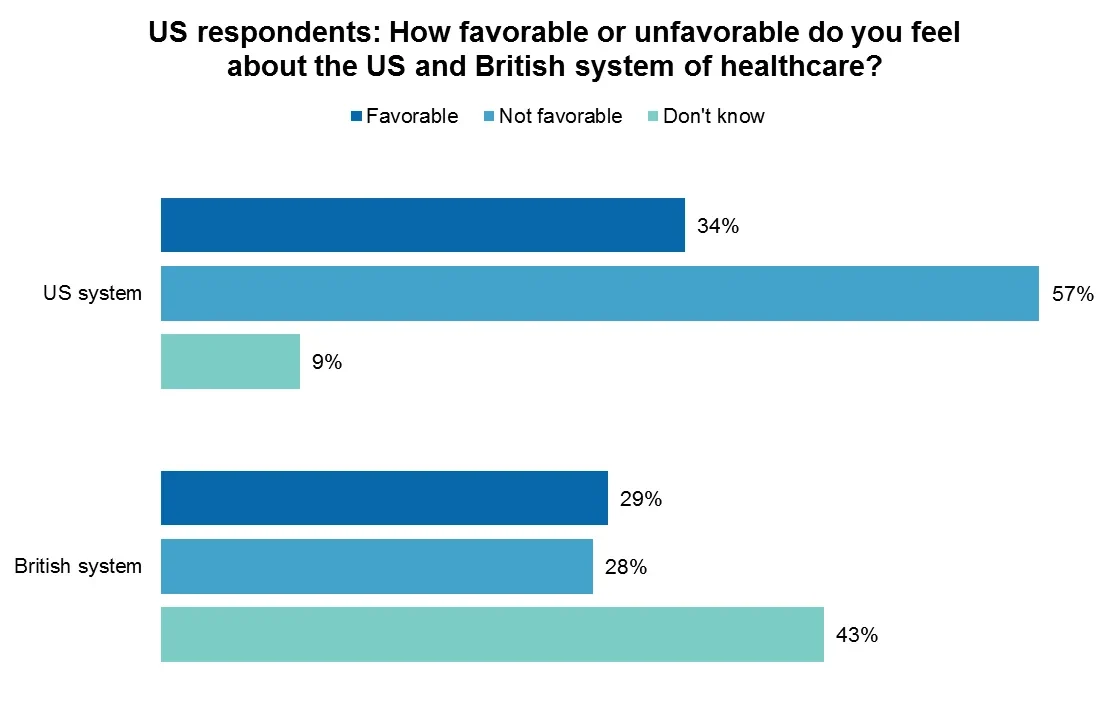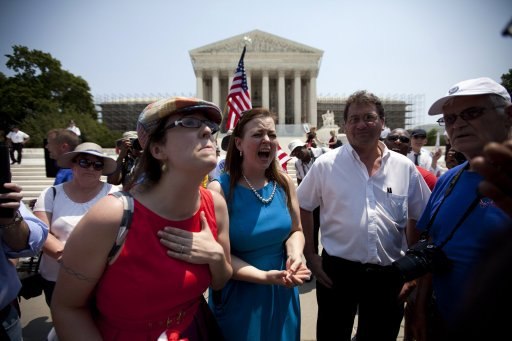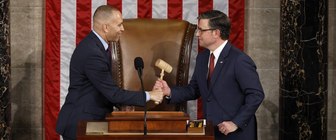This YouGov study was repeated in 2022, you can see the results here
With the Supreme Court making ruling on the Patient Protection and Affordable Care Act (ACA) this week, YouGov decided to canvass attitudes from their panelists in the UK and the US – two very disparate systems – to find out a little more about socialized healthcare versus insurance based healthcare, and to see how participants really felt about their own system, as well as that of their counterparts across the pond.
Both countries are engaged in deep – and often venomous – debate when it comes to their healthcare systems at the moment. In the US, the Act controversially dubbed ‘ObamaCare’ is dividing opinion throughout the country. In contrast, UK Prime Minister David Cameron has been accused of privatizing the National Health Service by stealth.
The UK healthcare system, founded shortly after World War Two by British politician Aneurin Bevan, is government-run, and free at point of access to users (though not ‘free’; the NHS is paid for through taxation). It is a socialized system of healthcare; one that is open to all, but as a result often experiences delays, frustrating bureaucracy, and lacks some of the most advanced (read: expensive) technologies. Due to the way it is funded, however, the UK government spends a decent amount of money on preventative medicine, making efforts to keep its population healthy, so that the need for more expensive treatment later on might be reduced.
In the US, healthcare is led by the private sector, with many Americans (and their employers) spending thousands of dollars a year on health insurance policies which, being market-driven, allows its users access far speedier access to treatments, and what are often more advanced technologies. However, healthcare is not necessarily seen as a 'right' for citizens (as it is in the UK), with arguments claiming it favors the wealthy – those who can't afford the non-compulsory insurance payments are often left to only emergency treatment – without preventative or palliative care – or the use of Medicaid and Medicare (for those on welfare and the elderly). Barack Obama is among some proponents of extending healthcare coverage to all through the ACA.
Both systems are undergoing change – or at least debating the potential for change. There are clearly arguments for and against both systems, but in the spirit of knowledge-sharing, we invited YouGov panelists on both sides of the water to tell each other what they thought, both through experience of their own system, and their perception of the other’s.
The findings were interesting, with perceptions apparently much more polarized in the UK. Not surprisingly, in a country where support for the National Health Service can be seen as a badge of patriotism, a greater proportion of participants in the UK claimed to view their system as ‘favorable’ than did in the US.
Most surprising was the division in how US and British participants viewed each other’s systems. British participants were more likely to view the US system as ‘unfavorable’ than Americans were to view the British system in the same way. While attitudes to "each other's" system (as something unknown) were relatively skeptical among all participants, Americans were generally more pragmatic in their views; more open to the view that the British system might have some benefits.
According to our US participants...
- Those who viewed the US system as favorable cited excellent care, modern technology, shorter waiting times and the choice of health provider
- Americans who viewed the US system as not favorable thought that healthcare was too expensive and unfair on poorer citizens, with insurers sometimes refusing to pay out
- US respondents who saw the British system as favorable praised the NHS for its universiality
- US participants who viewed the British system as unfavorable thought it had long waiting times, a lower quality of patient care and an overly-bureaucratic system

And according to our British participants...
- British respondents were overwhelmingly in favor of the NHS due to its access to all
- UK participants who saw the British system as unfavorable said waiting times could be long
- Brits in favor of the US system praised its high standards and the idea of getting value from an insurance scheme
- UK panelists who did not favor the US system saw it as unfair to poor citizens and did not like the insurance-based system
To add a little more insight into the nationally-representative statistics, YouGov then spoke to panelists in the US and UK about why they feel the way they do about each system (click on each argument to see more quotes).
What are your views on the US and British healthcare systems?
“Privatized healthcare is more efficient”
“Patients can take responsibility for their own healthcare and are not treated like children by the state.” Anon, UK
“I was recently hospitalized for a heart attack and needed another stent. I was rushed in, taken care of quickly and professionally. My three day stay was fairly pleasant and the care was excellent. My after care has been great. What's not to like?” Terry, Pennsylvania, US
“If you want access, you have to take out health insurance. This means there is good investment and those who have not contributed do not have unlimited and free access.” Bob, Cambridgeshire, UK
“I like that I can receive healthcare when I need to without delay.” Deb, Michigan, US
“It delivers generally excellent standards – new procedures and treatments before anywhere else, but at a price.” Anon, UK
“As Americans we have access to a multitude of healthcare options – mammograms, MRIs, ultra-sounds, EKGs, EEG, EMG – without having to get government approval.” Harriet, Florida, US
“You pay for healthcare, but I dislike the fact that people who can't afford it cannot get treated. Also, I like the fact that things happen a bit quicker in US healthcare.” Matt, Bournemouth, UK
“I can choose my doctor and he or she is almost always available.” Dorothy, Florida, US
“The US system is unfair”
“Americans all have to pay for all of their treatments regardless of it being a minor issue or not. No form of support is given to those who have a financial problem, so would they have to go untreated because of it? It all seems very ridiculous.” Anon, Exeter, UK
“Only the RICH and the POOR have healthcare in the US. Everyone else has to pay deductibles and co-pays and therefore cannot afford to go to the doctor OR dentist!” Anon, Ohio, US
“Staying healthy is too expensive. I avoid going to the doctor sometimes, due to the cost.” Maryjane, Virginia, US
“I don't doubt that there are centres of excellence in the US healthcare system but these are not open to all. Medical need does not really count as much as the ability to pay.” Anon, Cornwall, UK
“Health insurance is far too expensive. Insurance companies control treatment rather than doctors.” Dean S, California, US
“I really believe that people should not worry about paying for healthcare and because of that I fully back the healthcare NHS system in the UK.” Susan, Wakefield, UK
“People in the USA with the same health condition I have struggle to get their insurance firms to agree to the same treatment I get just on the recommendation of my doctor.” Rebecca B, West Midlands, UK
“Health insurance companies are fighting healthcare for all to gain profits for themselves.” Lynette, US
“The cost of healthcare in the USA is terrifying; unless I had insurance through my job there would be no way I would be able to afford it.” Rachel, Accrington, UK
“I think that American healthcare is a prime example of how we put profit before people.” Steven, UK
“The NHS is available to those who need it”
“Free care at the point of need - no worries about whether I can afford to be treated or have to convince an insurance company that I need treatment.” Irene, Scotland, UK
"Everyone has healthcare and can afford to stay healthy as opposed to getting sick." AM, Ohio, US
“I like that there is a comprehensive service that is for all citizens of the UK and for its visitors. It doesn't just work for the rich but rather for those in need.” Chris, Reading, UK
“They provide for the general welfare of the people. That is written into our Constitution, but we don't actually do it in the United States.” John P, New York, US
“It’s free and equal for any and all. This is possibly the single most important institution founded in Britain, ever. It allows people who would not be able to pay for treatments to recieve the care, attention and relevant medicines that they need.” Jack M., London, UK
“They have clinics all over the country that people can walk into and be treated. They have a much better preventative health care system than we do. No one goes bankrupt over a serious health problem.” Anon, US
“Simple, everyone gets taken care of. No one gets into financial trouble because they need medical help.” Remy, California, US
“It is free at the point of access, but also it is run as a public service and not as a for-profit institution. I believe this keeps the focus on the patient, and does not place undue weight on other factors (i.e. being a profitable business) which could negatively affect the service provided.” Anon, UK
“Socialized healthcare is too bureaucratic”
“There is far too much red tape and bureaucracy, which eats up funds that should be spent on medical services and facilities.” Anon, UK
“Forces people to be on a system which then has panels that choose who deserves treatment and how much treatment.” Chris, Virginia, US
“I would like to see more money spent at the front end and less on management.” John, Cheshire, UK
“It is government-run with a group of people with no medical background making decisions on peoples' health!” Anon, Florida, US
“The nursing staff seem to be demotivated and disillusioned by incompetent senior management.” Rob, Suffolk, UK
“Mismanaged, top heavy with too much money being paid to consultants and administration.” Maria, London, UK
“The NHS is a fiscal nightmare.” Sparky, Washington DC, US
“It is a socialist system replete with panels and formulas to determine what healthcare if any you get.” Derek, Virginia, US
“It’s like Obamacare – GOVERNMENT CONTROLLED!” Anon, US
“Socialized systems deliver a poorer service”
“It discriminates against those with disabilities and leaves the accountants in charge.” Julie, London, UK
“If the NHS is perfect, why are the British coming to America to have operations?” Anon, US
“Far too many serious mistakes, lack of respect for the elderly including drugging them to keep them quiet and serious physical injuries. Too many staff 'see nothing' when there is a wrongdoing.” Gill, Essex, UK
“It’s free, but good God don’t get sick!” Steven C., California, US
“The old and vulnerable are ignored by our misnamed "nursing staff" who couldn't care less about nursing.” David, Cambridge, UK
“How would you like to wait at least 4 weeks to get a doctor’s appointment?” Glen O, Texas, US
“Everything I hated about my healthcare provided while in the US military: long waiting times, no choice of physician, no choice of hospital, poor healthcare quality, no interest in my condition.” E.F., Kansas, US
“The government is “selective” as to who receives care.” Carolyn, Nevada, US
“I think wait times can sometimes be too long and it’s not right that services and levels of care vary depending on where you live.” Rachel, Manchester, UK
“It seems to be taken for granted that you can and will wait, with no effort being made by staff to speed up the process.” Karen, England, UK
“I've relatives and friends there, who fear what will happen if they need certain ongoing treatments after age 55. Again, they are not FREE people.” Anon, US
“Long waits for mediocre care.” Trent, Georgia, US








